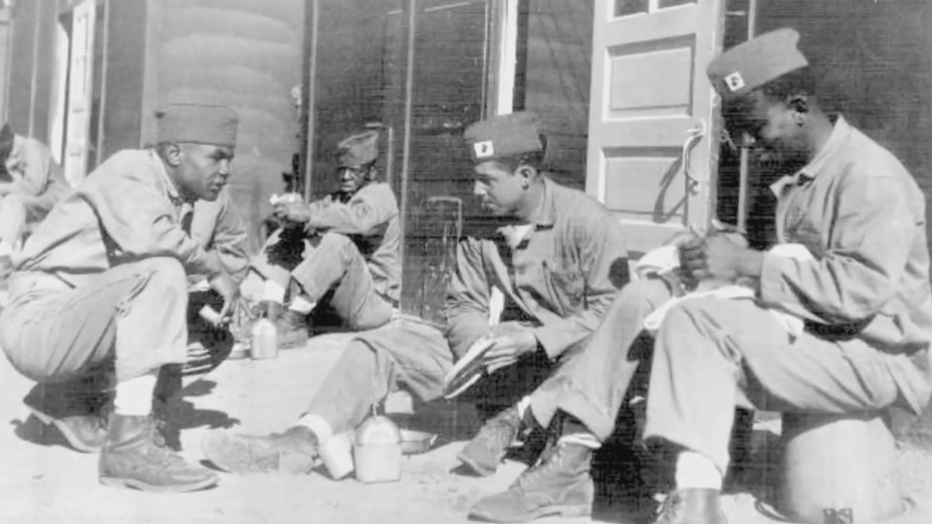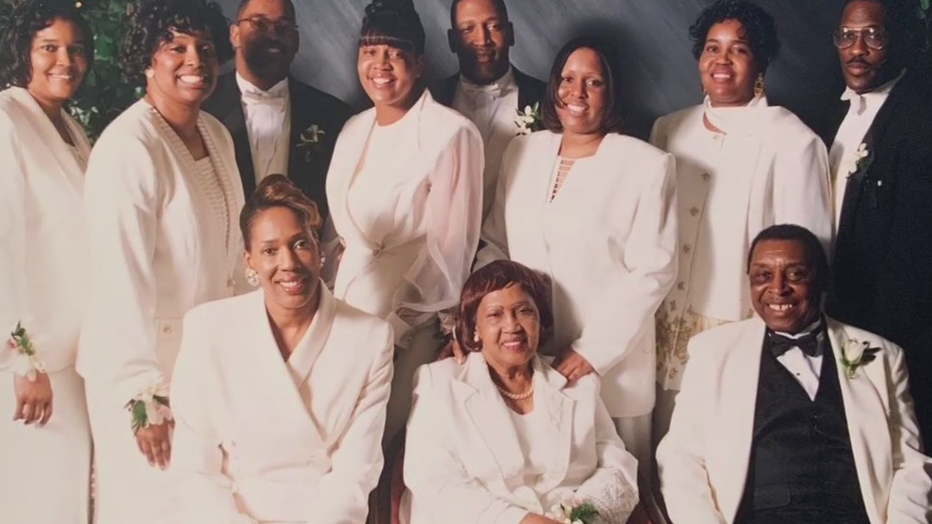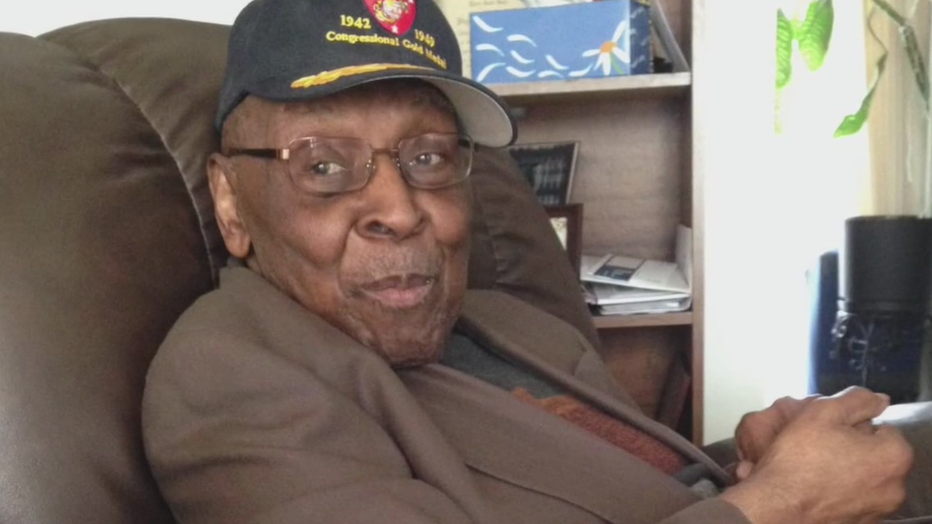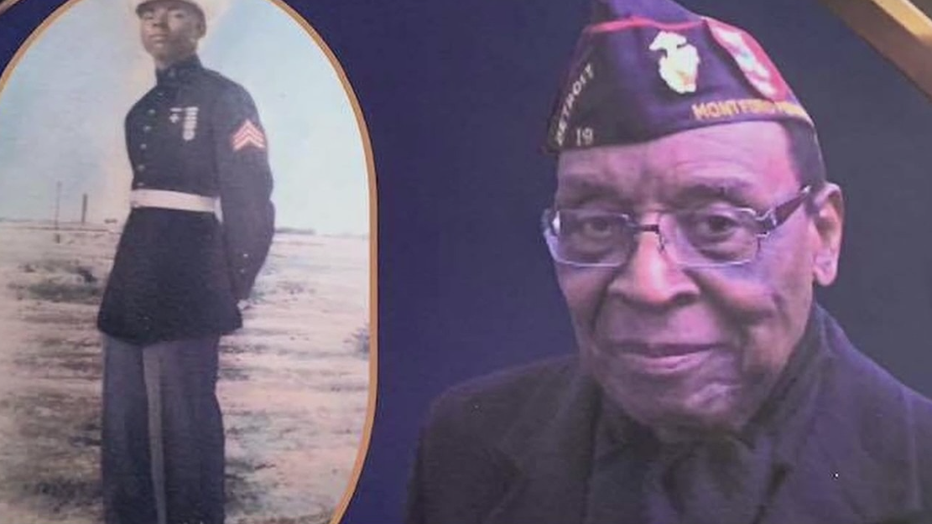Detroiter Henry Baul was one of the first Black Marines - and a trailblazing hero

The legacy of Montford Point Marine Henry Baul, who broke color barrier to fight for his country
The last living member of the Montford Point Marines 1st Platoon - has passed away. Henry Baul broke a 167-year color barrier when he joined the Marines, but his legacy lives on through family and service.
OAKLAND COUNTY, Mich. (FOX 2) - The last living member of the Montford Point Marines 1st Platoon - has passed away. Henry Baul broke a 167-year color barrier when he joined the Marines, but his legacy lives on through family and service.
"My sister said, 'Dad it’s time to go to bed,'" daughter Janice Sherell said. "He said 'I’m tired.' When she turned to pull his covers down, she heard him take his last breath. He was gone."
A few months shy of his 100th birthday, Henry Baul died a peaceful death in his sleep, inside his Detroit home. A departure from life, the dedicated soldier deserved.
"Being excellent under duress," daughter Maxine Martin said. "He didn’t want us to fall apart. There was nine of us. Everything wasn’t easy, but he taught us you can get through the tough times, and you can get through it well, but you have to hold yourself together."
Their father's war stories he often shared, exemplified his excellence.
Devastated by the attack on Pearl Harbor, Henry joined the Marine Corps becoming one of the first Black Marines to fight for their country.
The Armed Forces may have become racially integrated, but the five brave Black Marines still faced discrimination from the moment they arrived for training at Montford Point, North Carolina, separate from Camp Lejeune.

"He said when they were approaching the camp they were so excited, the soldiers were cheering but the bus didn’t stop," Maxine said. "It went past the white camp and when they got to their camp, there was nothing there. They were still excited so they built them a camp."
Known as "Top Gun" Baul rapidly advanced through the Marine Corps ranks – promoted to gunnery sergeant in the 51st Batallion. The sharpshooter bravely fought in World War II, but would come home to a rude awakening.
"I thought, 'Wow you came back from fighting for your country, but you are not part of your country,'" Maxine said. "He had been through that adversity he said you can go through it to and achieve great things in your life. My father achieved great things in his life but he never forgot how he suffered."
Henry married and raised nine children in the Jefferies Projects – one of poorest neighborhoods in Detroit. But with a focus on education, discipline, and their faith – the Baul family escaped poverty and moved to the west side.
Baul started as a cab driver, but eventually ended up running the business and another transportation company.
"Even before we knew what a soldier was, he was very disciplined – he was vert intentional about everything he did," Maxine said.

Henry Baul
"Having nine kids coming from the Jeffries Projects that made it out," Janis said. "We're successful, went to college, no jail, nobody got in trouble. That is his legacy."
And because Baul helped blaze the trail, future generations of color had the opportunity to fight for their country.
A proper honor finally came for the gunnery sergeant in 2012, when President Barack Obama awarded the surviving members of the Montford Point Marines, the Congressional Medal of Honor.
Commander Robert Middleton witnessed that historic moment.
"Having generated these relationships with these men, it’s like you are holding the hand of fleeting history," Middleton said. "We stand on their shoulders. These men are the shoulders we stood on, who opened doors for us.

Middleton worked closely with Baul as they lead the Montford Point Marines – now a nonprofit organization that works to preserve the group’s historic legacy. They became dear friends.
"He was one of the most extraordinary individuals I have ever met," Middleton said. "He was an exemplary leader, he was a business and professional man, he was a family man."
For his family, the loss of their patriarch weighs heavy on their hearts. They miss his love and the endless stories that were always wrapped in a life lesson.
On Veteran's Day, a feeling of comfort, knowing his historic legacy will live on.
"Our dad served his country with pride and with honor, and with integrity," Janis said.

Henry Baul

